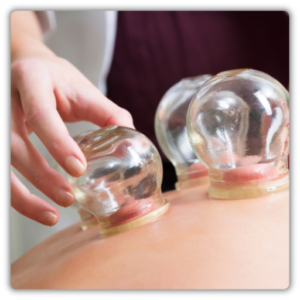What are the symptoms of UTIs?

UTIs occur when bacteria enter the urinary tract through the urethra, affecting the bladder and potentially causing a bladder infection. Common symptoms of a UTI include frequent urination, burning sensations, and lower abdominal pain. Women are likely to get a UTI due to their shorter urethra.
If left untreated, a UTI may progress to a kidney infection, requiring a course of antibiotics. To prevent a UTI, it’s important to drink plenty of fluids and maintain good hygiene. If UTI symptoms persist, it’s advisable to speak to your GP for further evaluation.
KEY POINTS
UTIs occur when bacteria enter the urinary tract, causing symptoms like frequent urination, burning sensations, and pelvic pain, with women being more susceptible due to their anatomy.
Preventing UTIs involves staying hydrated, maintaining good hygiene, and avoiding irritants like caffeine and artificial sweeteners.
Natural remedies such as cranberry juice, probiotics, and herbal teas may help support urinary tract health and reduce the risk of infections.
If UTI symptoms persist, worsen, or include fever and severe pain, seeking medical attention is crucial to prevent complications like kidney infections.

Pop in your email below, and we’ll zip it straight to your inbox so you never lose it!
What causes urinary tract infections?
UTIs occur when bacteria enter the urinary tract through the urethra, leading to infections in the bladder or even a kidney infection. Women are more likely to get a bladder infection because they have a shorter urethra, making it easier for bacteria to reach the bladder. Common UTI symptoms include a frequent need to urinate, burning sensation, and pelvic pain, which can indicate cystitis. If these symptoms go untreated, they may worsen.
To treat a UTI, a course of antibiotics is often prescribed, and drinking plenty of fluids can help flush out bacteria. It’s essential to speak to your GP if symptoms still persist or if you have frequent UTIs. Certain factors, like a swollen prostate, can increase the risk of developing a UTI, so understanding the symptoms and causes is vital for prevention. Regularly practicing good hygiene can help prevent a UTI.
How can UTIs be treated?
UTIs are a common type of infection that often show an infection in the lower urinary tract. Women have a shorter urethra, making them more susceptible to UTIs than men. These infections are typically caused by bacteria that enter the urethra and can affect the lining of the bladder.
To treat UTIs, patients may be prescribed antibiotics to eliminate the bacteria. If symptoms go away, treatment is often effective, but some people still have symptoms even after medication. UTI-like symptoms may indicate a more serious infection, especially if kidney stones are involved.
The urinary system is designed to prevent infections, but various factors can cause a UTI, leading to recurrent UTI episodes. The NHS recommends proper hydration and hygiene to help keep getting these infections at bay. Understanding the causes of UTIs is vital for effective management.
Why Is UTI More Common in Women?
UTIs are caused by bacteria entering the urinary tract, and women are more likely to get UTIs than men due to their shorter urethra than men. This anatomical difference increases the risk of recurrent UTIs. To minimize the chances, women may need to wipe from front to back after using the bathroom.
Symptoms that may indicate a urinary infection include pain or burning during urination. If these symptoms could mean a UTI, a urine test can help determine which antibiotic to use for treatment for UTIs. Chronic UTIs in women can lead to recurrent UTIs, so let your doctor know if you keep getting UTIs.
Women and people with vaginas have an increased risk of UTIs due to factors such as hormonal changes and sexual activity. A urinary infection can also spread from the kidneys to the bladder. Prompt treatment with antibiotics is essential to alleviate symptoms and prevent complications.
Home Remedies for UTI: Natural Ways to Soothe and Prevent Infections

Urinary Tract Infections (UTIs) are not only uncomfortable but can also disrupt your daily life. If you’ve ever experienced that burning sensation while urinating or the constant urge to go, you know how frustrating it can be. While severe UTIs require medical treatment, there are several home remedies that can help ease symptoms and even prevent infections from happening in the first place.
1. Stay Hydrated
One of the best ways to flush out bacteria from your urinary tract is by drinking plenty of water. Staying hydrated helps dilute your urine and encourages frequent urination, which can help wash away bacteria before an infection worsens. Aim for at least 8-10 glasses of water per day to keep your urinary system healthy.
2. Sip on Cranberry Juice
Cranberries have long been used as a natural remedy for UTIs. They contain compounds called proanthocyanidins, which may prevent bacteria from sticking to the walls of the urinary tract. If you’re looking for relief, opt for unsweetened cranberry juice—avoid sugary versions, as sugar can promote bacterial growth.
3. Boost Your Vitamin C Intake
Vitamin C helps acidify urine, making it harder for bacteria to thrive. You can increase your intake by eating citrus fruits, bell peppers, strawberries, and leafy greens. If you prefer supplements, consult your doctor about the right dosage.
4. Try Herbal Teas
Certain herbal teas have natural antibacterial and diuretic properties, making them great for supporting urinary tract health. Some options include:
•Parsley tea – Acts as a natural diuretic, helping to flush out bacteria.
•Chamomile tea – Known for its anti-inflammatory properties, it may help ease discomfort.
•Dandelion tea – Supports kidney and bladder function, promoting detoxification.
5. Probiotics for a Healthy Urinary Tract
Probiotics, commonly found in yogurt, kefir, and fermented foods, help maintain a balanced gut and urinary tract flora. A healthy microbiome may prevent harmful bacteria from overgrowing and causing infections.
6. Wear Loose, Breathable Clothing
Tight clothing and synthetic fabrics can create a moist environment that encourages bacterial growth. Stick to cotton underwear and loose-fitting clothes to keep the area dry and bacteria-free.
7. Avoid Bladder Irritants
Certain foods and drinks can irritate the bladder, worsening UTI symptoms. Try to reduce or avoid:
🚫 Caffeine
🚫 Alcohol
🚫 Spicy foods
🚫 Artificial sweeteners
8. Practice Good Hygiene
Simple hygiene habits can go a long way in preventing UTIs:
✅ Wipe front to back after using the restroom to avoid bacteria from spreading.
✅ Urinate before and after intercourse to flush out any potential bacteria.
✅ Avoid using scented feminine hygiene products, as they can disrupt the natural balance.
When to See a Doctor
While these home remedies can help alleviate mild symptoms, UTIs can sometimes become serious. If you experience:
❗ Fever or chills
❗ Severe lower back or abdominal pain
❗ Blood in your urine
❗ Symptoms lasting more than two days
It’s best to consult a doctor for proper antibiotic treatment. Untreated UTIs can lead to kidney infections, which are far more severe.
UTIs are common but preventable. By staying hydrated, practicing good hygiene, and incorporating natural remedies into your routine, you can support urinary tract health and reduce the chances of infection. However, always listen to your body—if symptoms persist, seek medical attention promptly.
If you’re looking for natural ways to support urinary tract health, check out this guide on 8 herbs and supplements for UTIs: Healthline – Herbs for UTIs.











